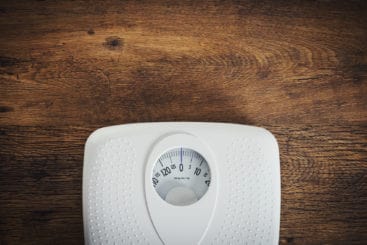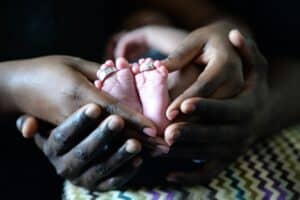The idea that it is the will of God for us to be healthy, wealthy, and successful is at the heart of the prosperity gospel. Preachers of this gospel lay out what needs to be done—how much money needs to be given, what we need to “name and claim” for ourselves—so that our lives reflect this supposed will of God.

The prosperity gospel teaches me that if I’m doing all the right things, my life will get markedly better in health, wealth, and success. Sick people, poor people, and unloved people have been convinced that their actions will curry God’s favor, in a way that is contrary to examples in Scripture and in Christian history. The result can be devastating—people who have very little are motivated to give money or time or energy, not because the Lord urges them to do so but because they are desperate for the hope that the prosperity preacher offers: Do this and God will show up in this specific way. Christian theologians and pastors are right to speak out against these teachings.
That’s why I am so intrigued (and honestly, frustrated) at the way the American church embraces a similar prosperity gospel, one that says when a fat person loses weight and gets smaller, she will have a better life—physically, spiritually, emotionally, financially, and romantically. It’s the same message as the prosperity preacher’s: Do this and you will be a better person, and God will show up for you more than God does now. In pulpits across our nation and in the social media feeds of the faithful, we hear this message: Lose weight, feel great, worship God even better! This is a type of prosperity gospel, and it is hurting God’s people—not just us fat ones, but all of us.
In pulpits across our nation and in the social media feeds of the faithful, we hear this message: Lose weight, feel great, worship God even better! This is a type of prosperity gospel, and it is hurting God’s people—not just us fat ones, but all of us.
Anti-fat bias is real, and it is ugly in American culture. It damages the quality of life for millions of fat people. For example, fat people earn less than thin people. It’s not as easy for us to get hired. We have a much harder time clothing ourselves. We are charged more for the right to travel in a space that fits our bodies. We are maligned and stereotyped as lazy and dumb. Perhaps worst of all, our doctors tend to overlook serious non-weight-related medical problems because they fixate on getting us to lose weight.
The church should be a place of refuge from the discrimination thrown at us by our culture, but unfortunately it is not. Our bodies are under attack inside and outside its doors, which means that there is no justice or peace for us in the very place we need it most.
Some churches focus specifically on weight for leadership (like this church in Washington). Others, instead of focusing on weight, attempt to shift the conversation from weight to health. (Fat acceptance activist J. Nicole Morgan has written on how this was detrimental to her church experience growing up.) The message that health is an important part of discipleship has a lot of supporters behind it. I’m not saying that health shouldn’t be spoken of in churches, but it is a very delicate topic, because when the church believes and repeats that “thin is healthy and healthy is better,” there is a problem.
It doesn’t matter if we couch it in spiritual terms like “caring for our temple of the Holy Spirit” or “being a good steward of our bodies.” Not only are we devaluing fat people, but we are also excluding disabled people, chronically ill people, and more—all of whom are people created good in the image of God—from a fruitful and joyful life in God’s kingdom. It’s the favoritism that James warns against—when we elevate those who possess “health,” we ignore and malign those whose bodies don’t exhibit it. This is absolutely contrary to the gospel of the Jesus, who stoops to care for the ones society has ignored and mistreated. The church should be the champion of the marginalized in society: the fat, the sick, the disabled, the weak. It should not contribute to their marginalization. Following Jesus does not mean that we are promised health, wealth, romance, or success. But God does give each of us dignity as humans created in the divine image.
“But where does health fit into the discipleship of fat people?” In my work as a faith-based body positivity activist at FatinChurch.com, I get this question a lot, in some form or other. Healthy discipleship can only flourish when people are respected and their dignity acknowledged. My answer is threefold. First, fat people are so much more than how much they weigh or how big they are. Instead of worrying about their health, get to know them and their joys and cares and concerns and needs. Second, you need to know that weight is a complicated thing. You cannot tell from looking at a person why their body is a certain size. Developing a relationship based on their personhood rather than their weight is of key importance. Third, health is so much more than a physical state; it involves mental, emotional, and spiritual health. It is best to love the whole person and to stand up for their dignity in the face of our anti-fat culture than to decide how healthy you think they should be.
What practical steps can you take to stand against the health prosperity gospel and anti-fat bias? Examine yourself and repent for any bias you have within yourself, against others or against your own body. Stand up to others who demean and belittle fat people. Call out your friends when they make fat people the butt of their jokes. Fight for fair treatment of fat people by the professionals in their lives. And most importantly, prayerfully consider how you can love the person in front of you and see their God-given beauty, which comes in every shape, size, color, ability, and orientation. The beauty of the kingdom is that, no matter how much I weigh, how little society values my culture, how abled I am, or how chronically my body fails to achieve wellness—I am valuable and have life to offer.
Amanda Martinez Beck is a Catholic writer, friend, wife, and mother of 4. She blogs about fat acceptance and faith at FatinChurch.com and about life, culture, and theology at amandamartinezbeck.com. You can follow her on Twitter @AmandaMBeck and @FatinChurch, and you can connect on Facebook.



2 Responses
You have made several good points here but I think you’re teetering over towards throwing the baby out with the bathwater. Yes, there are many reasons why folks might be overweight, but for a great many of us (myself very much included for almost as long as I can remember) if we are being honest with ourselves, we must admit to an idolatrous relationship with food, akin to that of an alcoholic or a drug addict. Many of us overeat in ways that enslave us, just like alcohol and drugs. The Bible teaches that idolatry to anything ensnares us and keeps us in bondage. The good news of the gospel is that Jesus promises to set us free from this bondage to idolatry. This true gospel freedom often does make our lives better and more productive and worship God with less idolatry in the way. That’s not a prosperity gospel, that is the TRUE gospel! Should churches not try to help us to that end?
I’ve never felt shame or insults from church weight loss programs that I’ve been a part of. Most were led by people who struggled with the same and had found that freedom and then wanted to turn around and help others in the same way. Certainly these efforts can veer off into vanity and prosperity promises but that doesn’t mean it begins there. The uncomfortable reality for me and many others is that being overweight usually is a result of an idolatrous food relationship and as members of the body of Christ, we are bound to help one another as we each strive to “throw off everything that hinders and the sin that so easily entangles.” Hebrews 12:1